Common Mallow
- Mallow (Malvaceae family):
- Malva neglecta Wallr.
- EPPO code:
- MALNE
- Other names:
- Garden mallow, cheeses
Species information
- Lifecycle:
- Annual, biennial or short-term perennial.
- Propagation:
- Reproduces by seed.
- Emergence:
- While common mallow can germinate and emerge at any time throughout the growing season, more often than not, it is one of the first species to emerge in spring.
- Habitat:
- Common mallow is common in eastern Canada. It grows predominantly on the borders of fields, along roadsides, and in lawns and gardens. Increasingly, it is being found in minimum-till cropping systems.
- Competitiveness:
- Since it rarely emerges in a competitive crop, little to no data exists on the competitiveness of this species. In cases where the species exists in the field prior to planting, it can affect crop establishment. It should, therefore, be controlled before planting begins.
Identification clues
Seedling
- Cotyledons:
- Spade-shaped with a heart-shaped base, prominent with veins and a long stalk.
- First leaves:
- The first leaves of common mallow are kidney-shaped, have shallow-toothed margins and grow on a long stalk.
- Mature leaves:
- Mature leaves are alternate. They are long-stalked, green to purple in colour, shallow toothed and lobed. Leaf blades are round or kidney-shaped with a heart-shaped base.
Mature plant
- Stem:
- The stem of common mallow is branched and hairy. It can be erect or trail on the ground.
- Flowers:
- The flowers of common mallow are 1–1.5 cm wide and have five white to pinkish petals. The species flowers from June until late autumn.
- Fruit:
- The fruit of common mallow has a circle or “section” of 12–14 seeds. Each section has flat sides, but a rounded back, and is finely hairy and contains one brown seed.
- Roots:
- Taproot
Often mistaken for
I know it's not Round-leaved mallow because common mallow is more abundant than round-leaved mallow but is otherwise hard to differentiate. Round-leaved mallow has smaller petals and the fruit sections have a flat back.
I know it's not Ground ivy because has opposite leaves with rounded teeth and produces a rancid, mint-like odour when crushed. In contrast, common mallow has alternate, kidney-shaped leaves with pointed teeth.
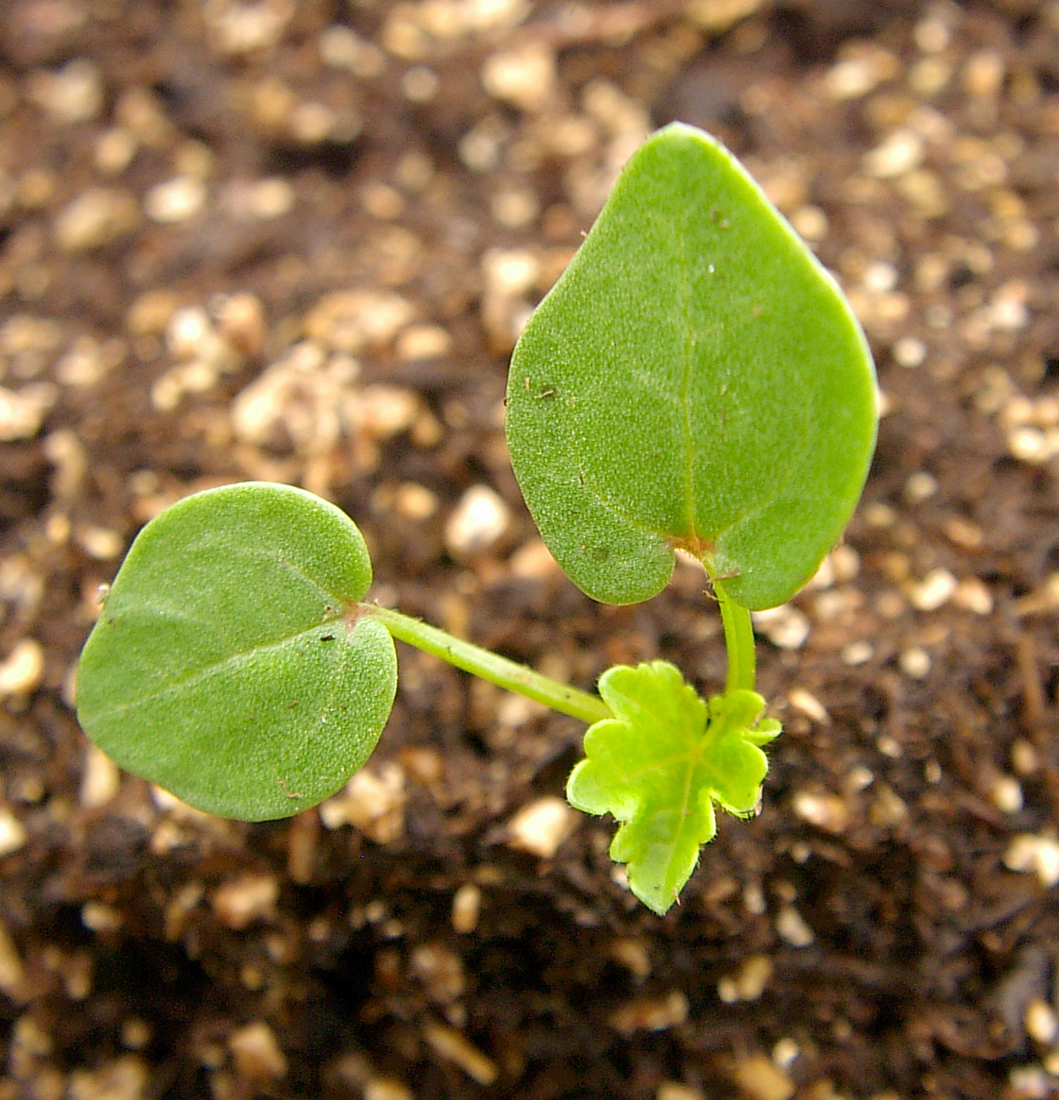
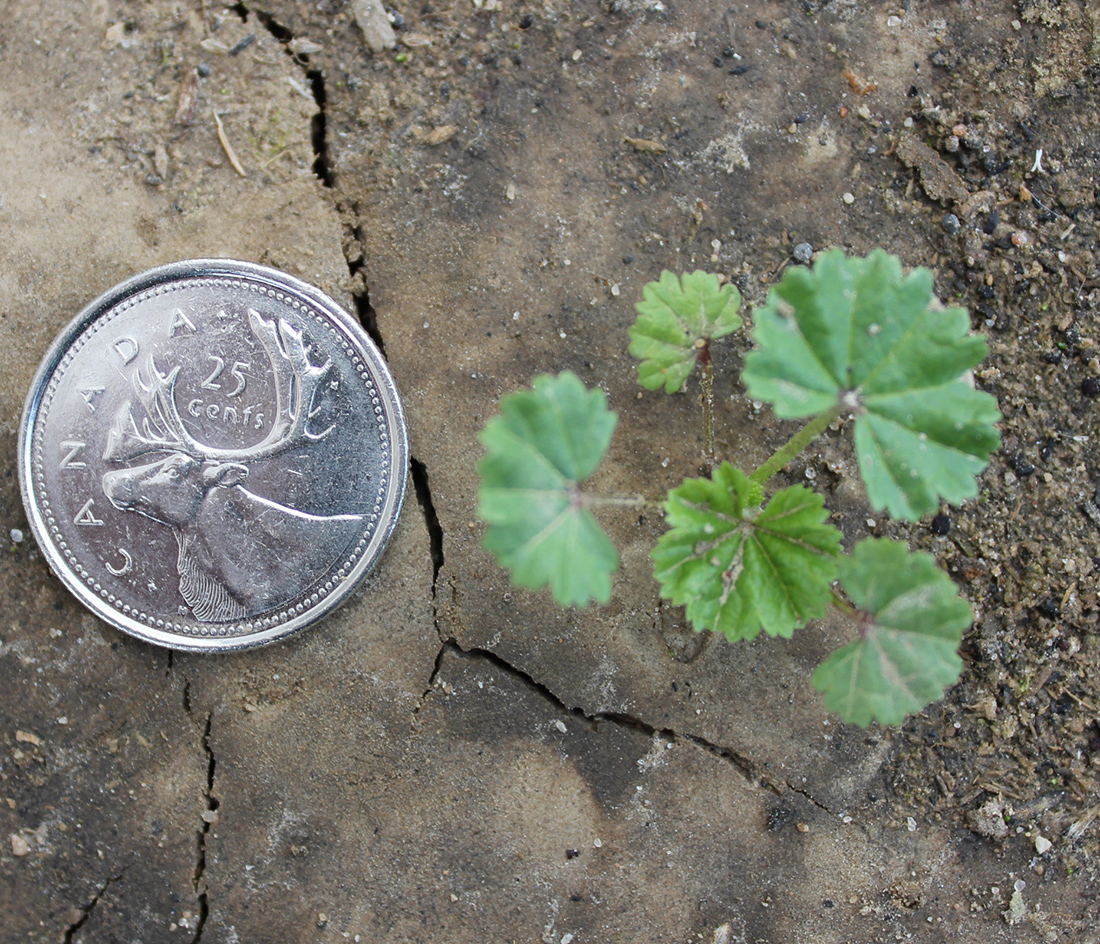
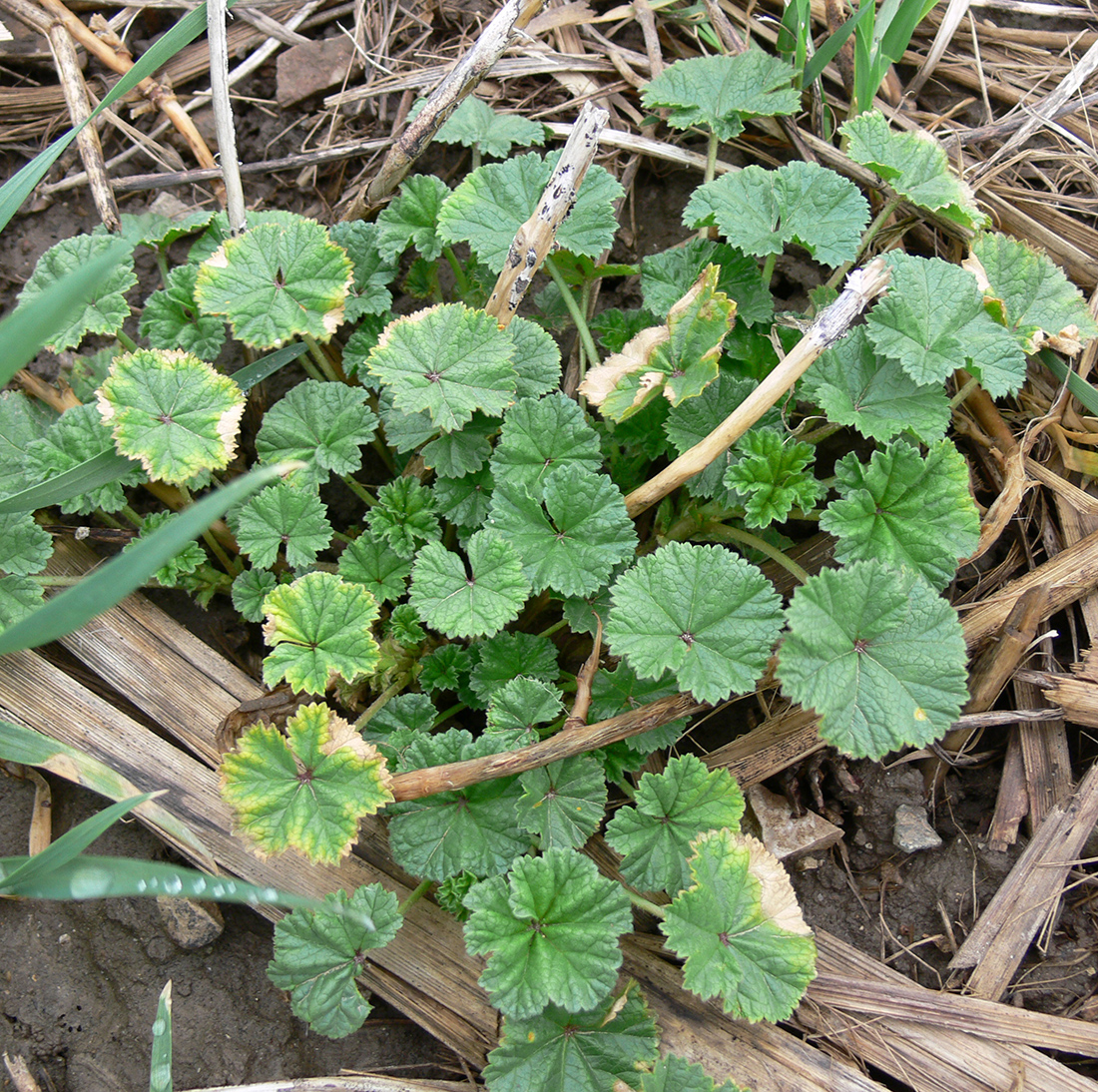
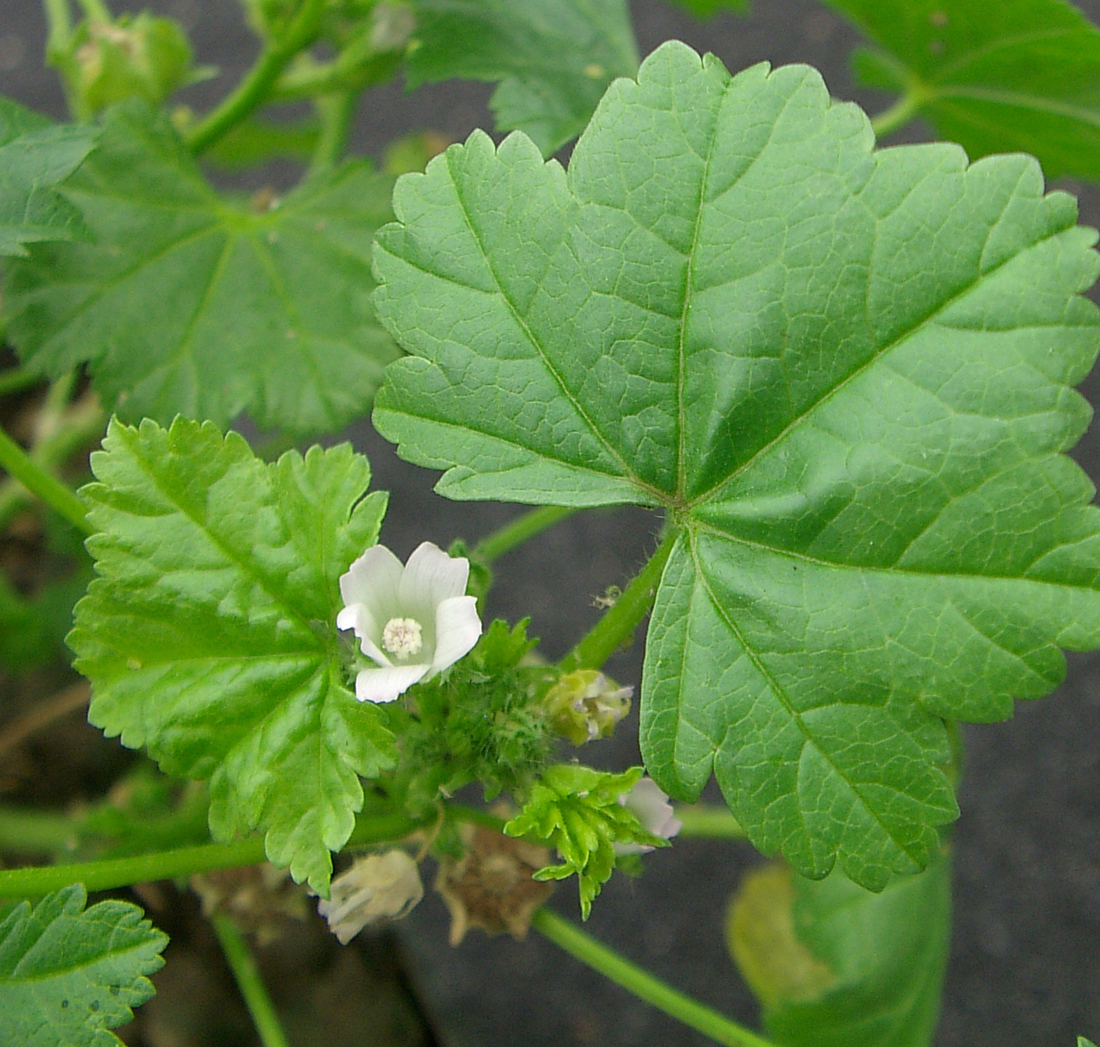
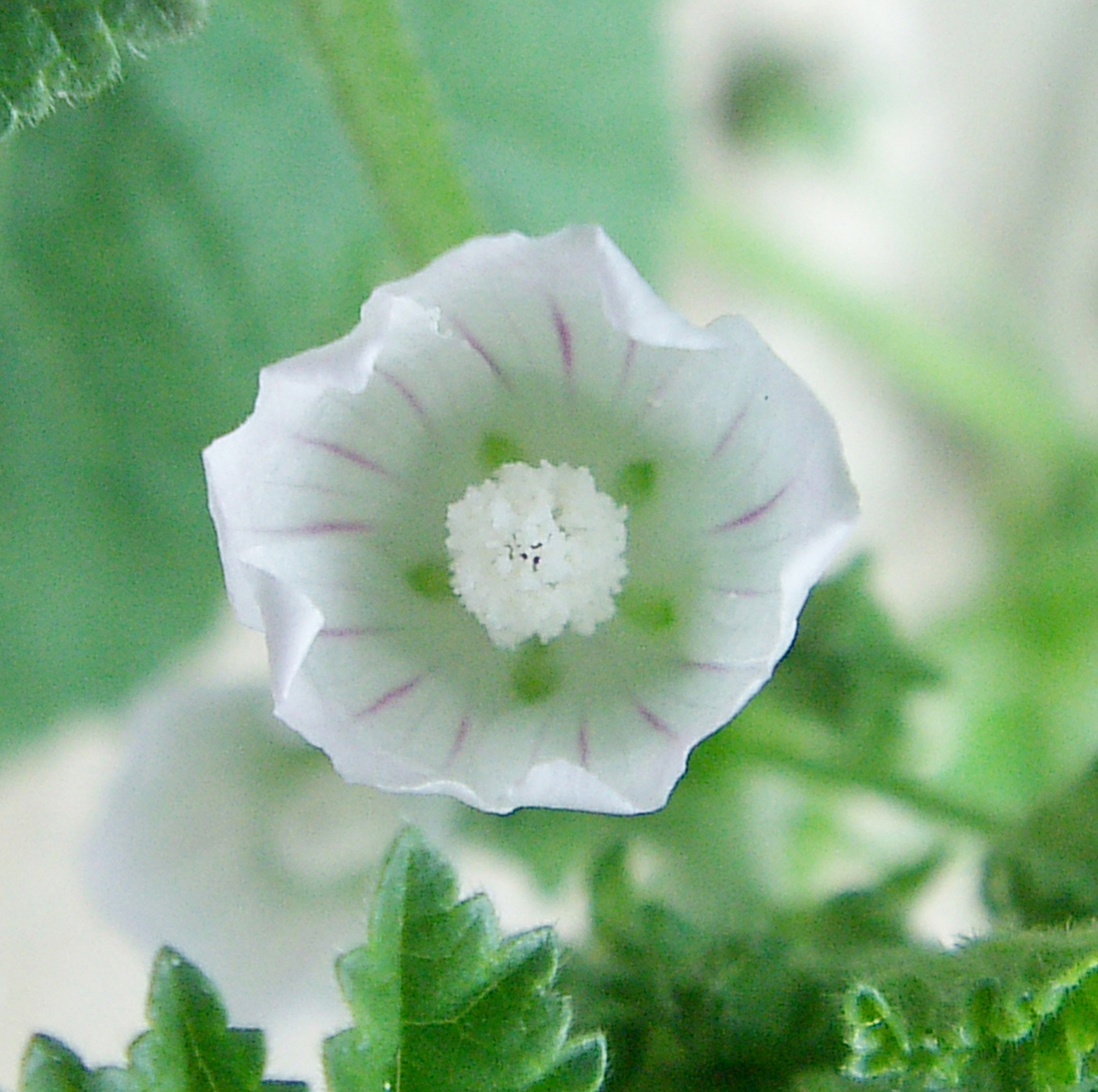
Updated: August 16, 2023
Published: January 13, 2023